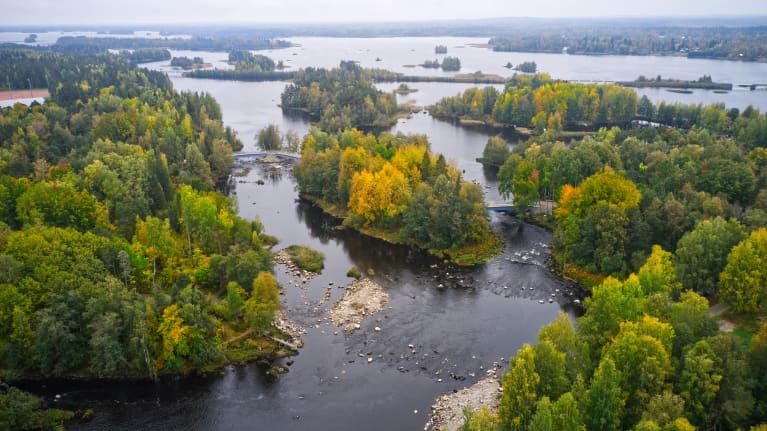Finland is among seven countries whose air quality met the standards of the World Health Organisation (WHO) last year, according to a global ranking.
The air quality in the majority of countries around the world contains more harmful particles than what is considered healthy, according to an air quality report from Swiss-based organisation IQAir.
The only countries that met the health group's air quality standards were Finland, Australia, Estonia, Iceland, Grenada, Mauritius and New Zealand, the report said.
The global survey was based on air quality monitoring data from more than 7,800 cities in 134 countries, regions and territories, according to the group.
Among other things, monitoring compared the air quality in those locations using the WHO's guidelines for PM2.5 — tiny particles in the air caused by vehicles and industry.
"Exposure to PM2.5 air pollution leads to and exacerbates numerous health conditions, including but not limited to asthma, cancer, stroke, and lung disease. Additionally, exposure to elevated levels of fine particles can impair cognitive development in children, lead to mental health issues, and complicate existing illnesses including diabetes," IQAir stated in a report summary.
The assessment found that air particulates in the most polluted countries were more than ten times higher than recommended levels — those countries included Bangladesh, India, Pakistan and Tajikistan.
The poor air quality in those countries was mainly due to road traffic, industry and the burning of coal. Additionally, emissions are rising in those countries due to many people burning wood and manure for cooking and heating.
Globally, the air is cleaner overall than in the past, but air quality has deteriorated in a number of regions for one reason or another.
For example, Canada's air quality was worsened by last year's massive forest fires and emissions in China grew by 6.5 percent as the country's industrial sector started making headway after the coronavirus pandemic.
UK newspaper the Guardian reported on Tuesday that seven million people around the world die every year due to air pollution — which is more than the fatalities caused by AIDS and malaria, combined.
People in developing countries suffer the most air pollution-related health problems. For example, around 20 percent of premature deaths in Bangladesh are caused by air pollution, according to a report from news agency, Reuters.
The tiny air particles pose dangers to a number of groups — including the elderly, young children and people with long-term illnesses — and exposure to them for just a few hours or days can be life-threatening.
Users with an Yle ID can leave comments on our news stories. You can create your Yle ID via this link. Our guidelines on commenting and moderation are explained here.
